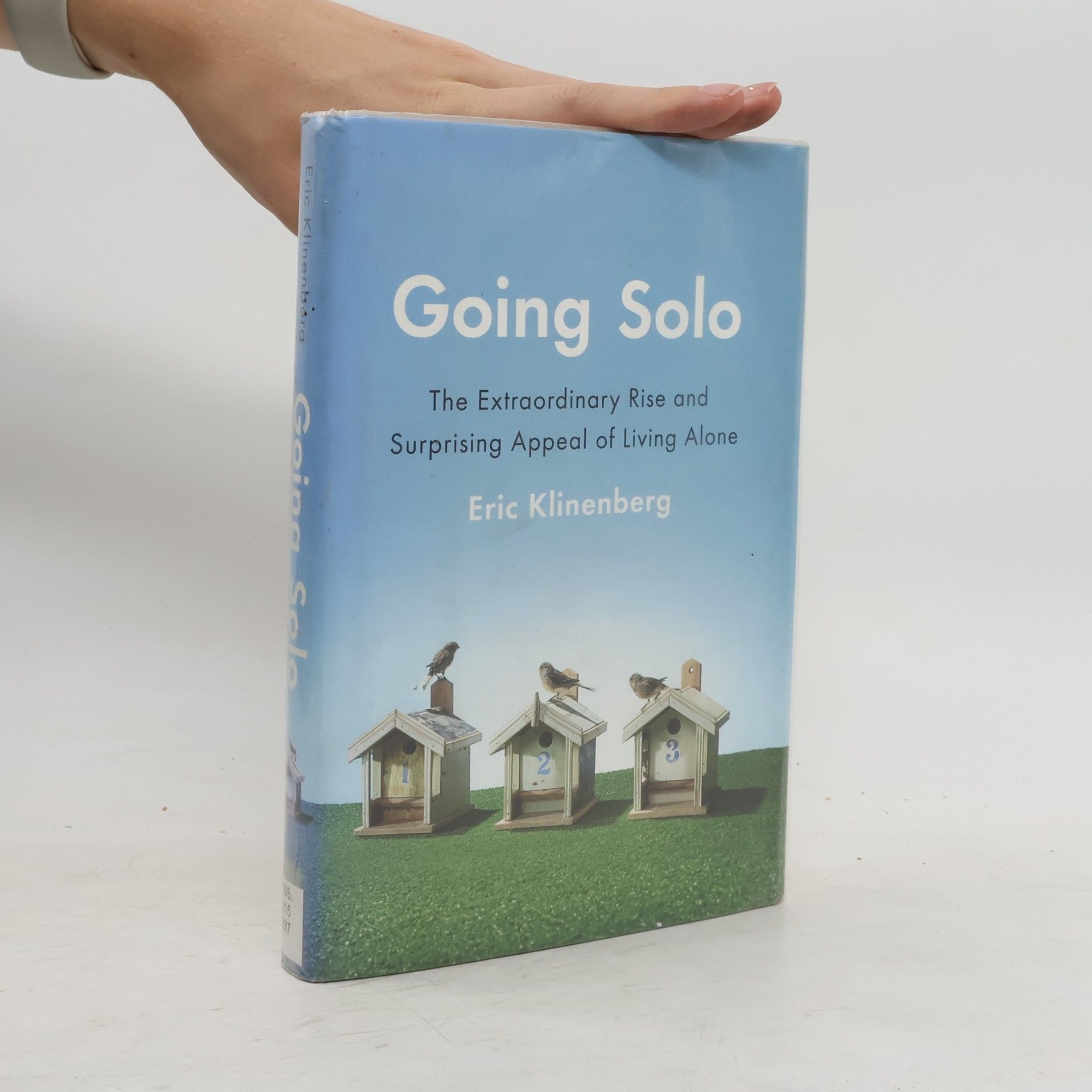Conversations with Richard Sennett
- 180 páginas
- 7 horas de lectura
Eric Klinenberg es un sociólogo que examina cuestiones fundamentales de la sociedad contemporánea. Su trabajo profundiza en la creciente tendencia a vivir solo y sus implicaciones, analiza el poder y la influencia de los medios en la formación del discurso público y ofrece análisis sociales en profundidad sobre desastres y crisis. Klinenberg combina una investigación meticulosa con una aguda perspicacia para revelar las fuerzas sociales subyacentes.






How can we bring people together? In Palaces for the People the sociologist and best-selling author Eric Klinenberg presents a simple but transformative idea for health, happiness, safety and healing our divided, unequal society. Too often we take for granted and neglect our libraries, parks, markets, schools, playgrounds, gardens and communal spaces, but decades of research now shows that these places can have an extraordinary effect on our personal and collective wellbeing. Why? Because wherever people cross paths and linger, wherever we gather informally, strike up a conversation and get to know one another, relationships blossom and communities emerge - and where communities are strong, people are safer and healthier, crime drops and commerce thrives, and peace, tolerance and stability take root. Through uplifting human stories and an illuminating tour through the science of social connection, Palaces for the People shows that properly designing and maintaining this 'social infrastructure' might be our single best strategy for a more equal and united society.
Una investigación profunda, reflexiva y divertida de los placeres y los peligros del cortejo moderno de la mano de una de las voces cómicas más afiladas de la actualidad. Cada uno de nosotros se embarca en un viaje en busca del amor. Conocemos gente, quedamos, nos metemos en una relación o salimos de ella, y todo con la esperanza de encontrar a alguien con quien compartir la vida. Parece algo corriente, lo que siempre se hacía y hacía todo el mundo, pero las cosas eran muy distintas tan solo hace algunas décadas. Los solteros de hoy tienen muchas más oportunidades que en ninguna otra época. Con la tecnología, nuestras habilidades para conocer gente nueva y elegir entre las distintas opciones resultan asombrosas. Entonces, ¿cómo es que hay tanta gente que no lo consigue?
The Extraordinary Rise and Surprising Appeal of Living Alone
This examination reveals the significant demographic shift of increasing numbers of people living alone, offering insights into the benefits of this change. In 1950, only 22 percent of American adults were single; today, over 50 percent are, with 31 million living alone. Solo dwellers comprise 28 percent of U.S. households, outnumbering any other domestic unit, including nuclear families. Renowned sociologist Eric Klinenberg argues that these statistics reflect a profound transformation rather than a fleeting trend. He investigates the rise of solo living and its impact on culture, business, and politics. Contrary to the belief that living alone leads to loneliness, Klinenberg finds that many solo dwellers are actively engaged in social and civic life. They tend to dine out, exercise, attend cultural events, and volunteer more than their married counterparts. Moreover, those living alone often enjoy better mental health and adopt more sustainable lifestyles, favoring urban apartments over large suburban homes. Through over three hundred interviews with diverse individuals, Klinenberg concludes that this lifestyle can foster self-discovery and appreciation for good company. With compelling statistics and vivid personal stories, he challenges conventional wisdom and provides a critical assessment of how living alone is reshaping the American experience.
Der amerikanische Soziologe und Bestsellerautor über die Geschichte der Pandemie